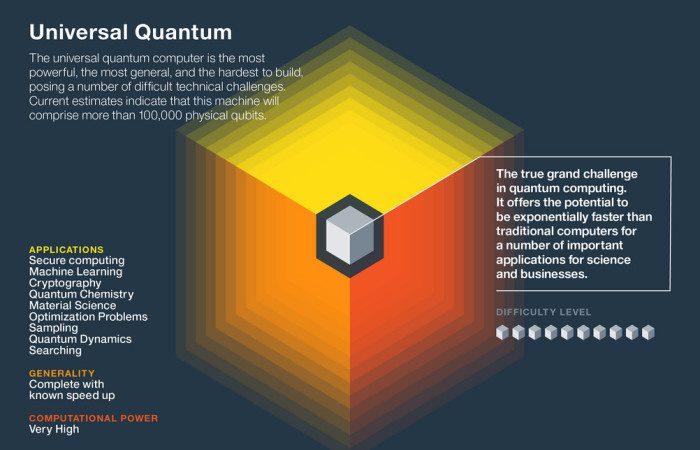Quantum computing represents a paradigm shift in computational capabilities, fundamentally altering how we approach problem-solving in various disciplines. Drawing upon the principles of quantum mechanics, these sophisticated machines harness the unique properties of quantum bits, or qubits, to perform operations at unprecedented speeds. This article elucidates the distinctive attributes that render quantum computers exceptional, examining their architecture, computational advantages, and potential applications.
The cornerstone of quantum computing is the qubit, a unit of quantum information that surpasses the limitations of classical bits. Classical bits exist in one of two states: 0 or 1. In contrast, qubits can inhabit a superposition of these states thanks to quantum mechanics. This property allows qubits to represent multiple values simultaneously, exponentially increasing the computational power obtainable from a system. For example, while a classical computer with 10 bits can encode 210, or 1024, different states, a quantum computer with merely 10 qubits can represent 210 simultaneously, illustrating the capacity of quantum systems to process vast quantities of information concurrently.
Alongside superposition, another fundamental property inherent in quantum systems is entanglement. Entangled qubits exhibit a unique correlation; the state of one qubit is directly tied to the state of another, regardless of the spatial separation between them. This phenomenon enables quantum computers to perform complex calculations that would take classical systems impractically long to execute. In essence, entangled qubits can work in tandem to solve problems through parallel processing, drastically enhancing computational efficiency and effectiveness.
Operational fidelity, a measure of error rates and control in quantum computations, poses significant challenges. Quantum states are notoriously fragile, susceptible to decoherence, which is the loss of quantum coherence due to environmental interactions. Advanced error-correction techniques are vital to maintain the integrity of quantum information. Researchers have made substantial strides in developing robust quantum algorithms and error correction protocols that mitigate the impact of decoherence, leading to more reliable quantum computing systems.
One of the most compelling advantages of quantum computing lies in its ability to tackle specific computational problems that defy feasible solutions on classical computers. Notably, quantum algorithms, such as Shor’s algorithm for integer factorization and Grover’s algorithm for unstructured search, exhibit remarkable efficiency. Shor’s algorithm, for instance, can factor large numbers exponentially faster than the best-known classical methods, rendering it a potent tool for encryption systems, which could challenge the foundations of current cybersecurity practices.
The implications of quantum computing extend beyond theoretical realms; industries are poised to be revolutionized by its advent. In the field of pharmaceuticals, quantum simulations can significantly accelerate drug discovery processes. Quantum computers possess the capability to model molecular interactions with unparalleled precision, allowing scientists to explore vast chemical spaces and optimize drug candidates more efficiently than traditional methods permit.
Financial modeling also stands to benefit immensely from quantum algorithms. Portfolio optimization, risk analysis, and fraud detection processes could leverage the computational prowess of quantum systems to assess scenarios and generate actionable insights far more rapidly. As businesses navigate increasingly complex financial landscapes, the need for robust, data-driven decision-making processes will become paramount, positioning quantum computing as an integral tool for the financial sector.
Furthermore, the energy sector may experience transformative enhancements through quantum computing. Quantum algorithms can address intricate optimization problems in energy distribution, grid management, and power consumption modeling. These capabilities could lead to the development of more efficient energy sources, contributing to the global quest for sustainable solutions amidst the escalating challenges posed by climate change.
Despite the immense potential, the path to widespread quantum computing adoption is fraught with challenges. Key hurdles include the technical difficulty of building stable quantum hardware, the complexity of programming quantum algorithms, and the necessity for substantial advances in quantum networking. As researchers strive to bridge these gaps, the realization of practical quantum computers remains a tantalizing vision, one that demands both scientific rigor and imaginative ingenuity.
In conclusion, quantum computing distinguishes itself through its unique computational framework built upon qubits, superposition, and entanglement. The convergence of these principles grants quantum computers vast advantages, enabling them to tackle problems that remain intractable for classical systems. From revolutionizing drug discovery to enhancing financial analytics and optimizing energy use, the transformative impact of quantum computing may redefine industries and drive future advancements. As we stand on the brink of this technological revolution, the pursuit of quantum computing promises to unveil remarkable possibilities that could reshape our understanding of computation itself.












